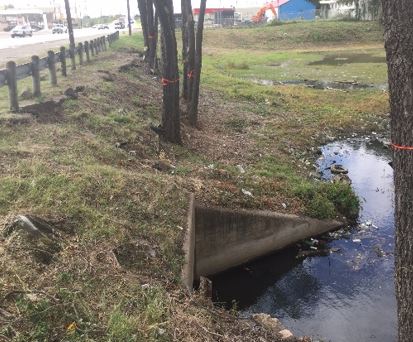VRX provides comprehensive environmental management services and ensures the quality and accuracy of VRX staff efforts to prepare environmental reports and permits for ongoing City of Dallas DWU water/wastewater main replacements of various pipeline-identified (PID) segments. The $39M project involves more than 36,740-feet of water main replacement.
Our tasks on behalf of the prime, include delineation of Waters of the U.S., U.S. Army Corps of Engineers Sections 404 and 408 permitting, coordination, site assessments, tree inventories, and Phase I and Phase II Environmental Site Assessments, among other responsibilities.
For example, DWU is proposing to design and construct approximately 2,200-lf of 48-inch water main and an 8-inch wastewater main from Riverfront Boulevard to Cockrell Avenue to improve water utility function. For this segment, VRX conducted delineations of Waters of the U.S. and prepared a preliminary jurisdictional determination in support of the Section 404 (Clean Water Act) permitting process. In addition, VRX prepared a U.S. Army Corps of Engineers (USACE) Nationwide Permit 12 Preconstruction Notification to address USACE Section 404 permitting and USCG Section 10 permitting because this PID crosses portions of the Able Sump.
VRX prepared a Section 408 (Rivers and Harbors Act) Request for Permission and conducted coordination with the USACE Operations Division in Dallas to attain USACE permission to cross the Able Sump, a USACE Civil Works Project. (USACE permission is pending review.)
VRX also assessed the site for threatened and endangered species habitat, conducted tree inventories in accordance with City of Dallas Article X: Landscape and Tree Preservation Regulations, and conducted a limited Phase I Environmental Site Assessment (ESA) in accordance with the ASTM E1527 standard. The limited Phase I identified recognized environmental conditions (RECs), resulting in a File Review/Site Screening (FRSS), per the DWU Standard Protocol for Soil and Groundwater Management on Construction Sites. The FRSS documented environmental conditions of the RECs and eliminated the need for a Phase II Site Assessment for the PID.
